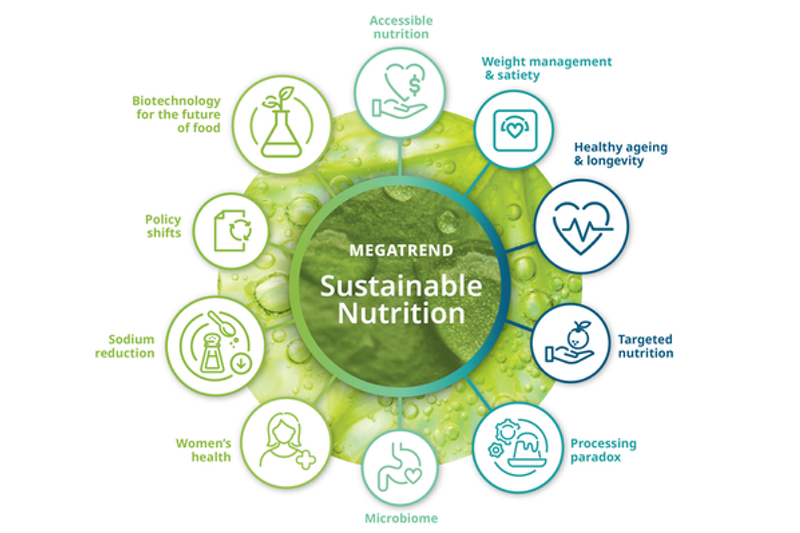Kerry Group's Kerry Health and Nutrition Institute (KHNI) has announced its top ten key health and nutrition trends for 2025.
The company developed this list with the help of its industry network, which includes more than 100 scientific experts.
With insights from nutritionists, sustainability leaders, food scientists and regulatory specialists, this open access report offers an overview of the scientific developments that will shape the nutrition industry in 2025.
The KHNI highlights these trends in its report:
- Accessible nutrition: Ensuring nutritious food is both available and affordable to the public will become increasingly important in 2025. Therefore, there may be an increased focus on cost-effective, nutrient-dense ingredients to combat hunger
- Weight management and satiety: With the rise of GLP-1 receptor agonist medications and consumer desire to effectively manage their weight, the industry could cater with satiety-boosting foods
- Healthy ageing: Functional food, supplement and nutraceutical manufacturers can all assist older adults in enhancing their quality of life through nutritional formulations
- Targeted nutrition: Personalised dietary solutions can help consumers to address unique health needs through tailored nutrition plans
- Processing paradox: Enhancing the nutritional quality of process foods could enable the production of sustainable and convenient foods, while addressing the current issues with processed foods

Kerry Group's top ten trends for 2025
- Microbiome: By targeting the microbiome, we can unlock whole-body benefits. Microbiome modulators such as probiotics and postbiotics can offer great opportunity, according to Kerry.
- Women’s health: Women have distinct nutritional needs throughout various periods of their life, so companies can look to address these through specific ingredients
- Sodium reduction: Increasing global regulatory pressure to reduce salt has spurred innovation in taste modulation and customised solutions
- Policy shifts: Stricter regulations are driving the food industry towards healthier and more sustainable products and practices
- Biotechnology: Advancements in microbiology, bioprocessing and artificial intelligence are transforming how we produce food, making it smarter, more efficient and more sustainable.
Commenting on the trends, Dr Aoife Marie Murphy of the KHNI said: “This report shows us that areas like healthy ageing, reducing sodium and understanding the microbiome are all areas where science is evolving. These trends can inform new product innovation, delivering the health benefits that consumers are looking for, while also considering taste, affordability and sustainability.”
